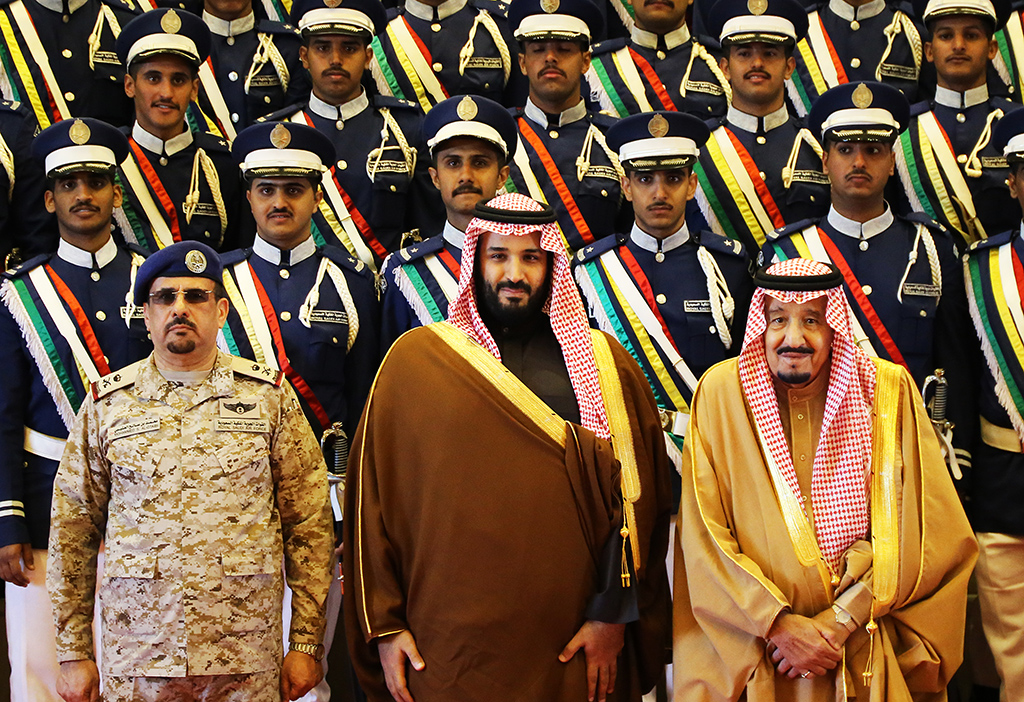
Saudi Arabia's painful transformation
The crown prince's grip on power, which has received the blessing of the United States, Israel and the Gulf, has been accompanied by powerful rhetoric of reform, a new vision, development and fighting corruption.
Share
Over the past five months, Saudi Arabia has become a center of attention in world politics with unusual frequency. The main reason for this attention is that the country has been searching for a new and ambitious foreign policy amid regional chaos. Ballistic missiles fired by Yemen's Houthis, efforts to coordinate with Iraqi Prime Minister Haider al-Abadi and the resignation of Lebanese Prime Minister Saad Hariri have all been followed closely by Riyadh. After all, Saudi Arabia, which was a champion of the status quo during the Arab Spring, has assumed the leadership of efforts to contain Iran.
The appointment of Mohammad bin Salman as crown prince last June marked the beginning of an open-ended period of painful transformation in Saudi Arabia. In a range of areas, including the economy, domestic politics, the transformation of Riyadh's official ideology and ambitious regional policies, the young crown prince has taken audacious steps. Clearly, he wants to become a game changer at home and in the region.
Having made his mark on Saudi politics by launching a war in Yemen, escalating tensions with Qatar, unveiling the Vision 2030 and making public remarks on going back to moderate Islam, Prince Mohammad kicked off a campaign against his potential rivals by launching an anti-corruption operation on Nov. 4.
Among those detained were 11 princes, including two sons of the late King Abdullah – Prince Turki bin Abdullah, the Riyadh governor, and Prince Mutaib bin Abdullah, the head of the National Guard – as well as four minister and a large number of former ministers. As such, the crown prince has, at least for the time being, consolidated his power by taking over national defense, internal affairs and the National Guard. Add his control over the media and the recent arrest of religious scholars and you might think that he is ready to be crowned.
The crown prince's grip on power, which has received the blessing of the United States, Israel and the Gulf, has been accompanied by powerful rhetoric of reform, a new vision, development and fighting corruption. However, it is unlikely that the game of thrones within the House of Saud and questions about which generation will rule the country will go away anytime soon.
Even if he manages to keep the traditional Saudi-Wahhabi alliance intact, it seems inevitable that the crown prince's power will alienate a large number of people in the royal family. The balance of power within the House of Saud, which fellow siblings could preserve to some degree, has been irreparably damaged as a result of the most recent wave of arrests. The crown prince, who would like the Salman family to govern Saudi Arabia, has no choice but to take radical steps in order to end the power struggle within the royal family. If he succeeds, he might restore stability for a long time. However, it remains to be seen if and how Mohammad, who has the support of educated youth and women, will be able to win over the conservative representatives of Wahhabism without resorting to violence. The question is on which ideological basis he hopes to form a grand coalition without the rigid language of Wahhabism. As I noted in the past, the most likely answer is Arab nationalism.
To take an apolitical version of Salafism and re-brand it as Arab nationalism would be inherently contradictory. On the one hand, Saudi Arabia will have to fight against Iran's Shiite ideology and militias in places like Yemen and Lebanon, and on the other, the country will be forced to soften the tone of Wahhabi expansionism in order to make it compatible with the West and Israel. Meanwhile, the Salafist opposition at home will be subjected to immense pressure, as the Saudi leadership looks for a magic formula to keep both the traditional clergy and young people and women, who call for reforms, happy.
The most radical aspect of Mohammad bin Salman's quest for change relates to his ideas about promoting economic development in Saudi Arabia, which remains a rentier state – a difficult step that must be taken amid region-wide chaos and fierce competition with Iran. As such, Mohammad's brand of politics could bring long-term stability to Saudi Arabia. But it is equally likely that he will create turmoil that could place his country's survival at risk.
The result will be determined by Saudi Arabia's ability to execute plans to contain Iran while consolidating its domestic politics and foreign policy. For now, the situations in Syria, Yemen and Lebanon remain bad, and nothing has changed in Iraq.
[Daily Sabah, 10 November 2017]
Tags »
Related Articles






